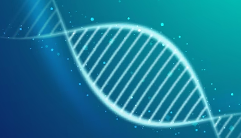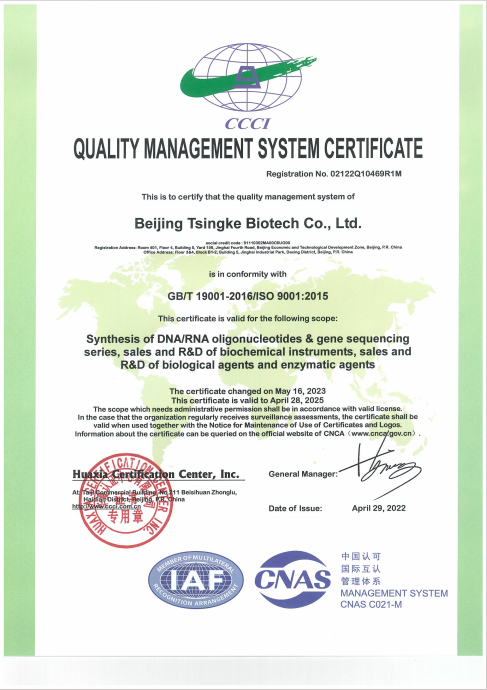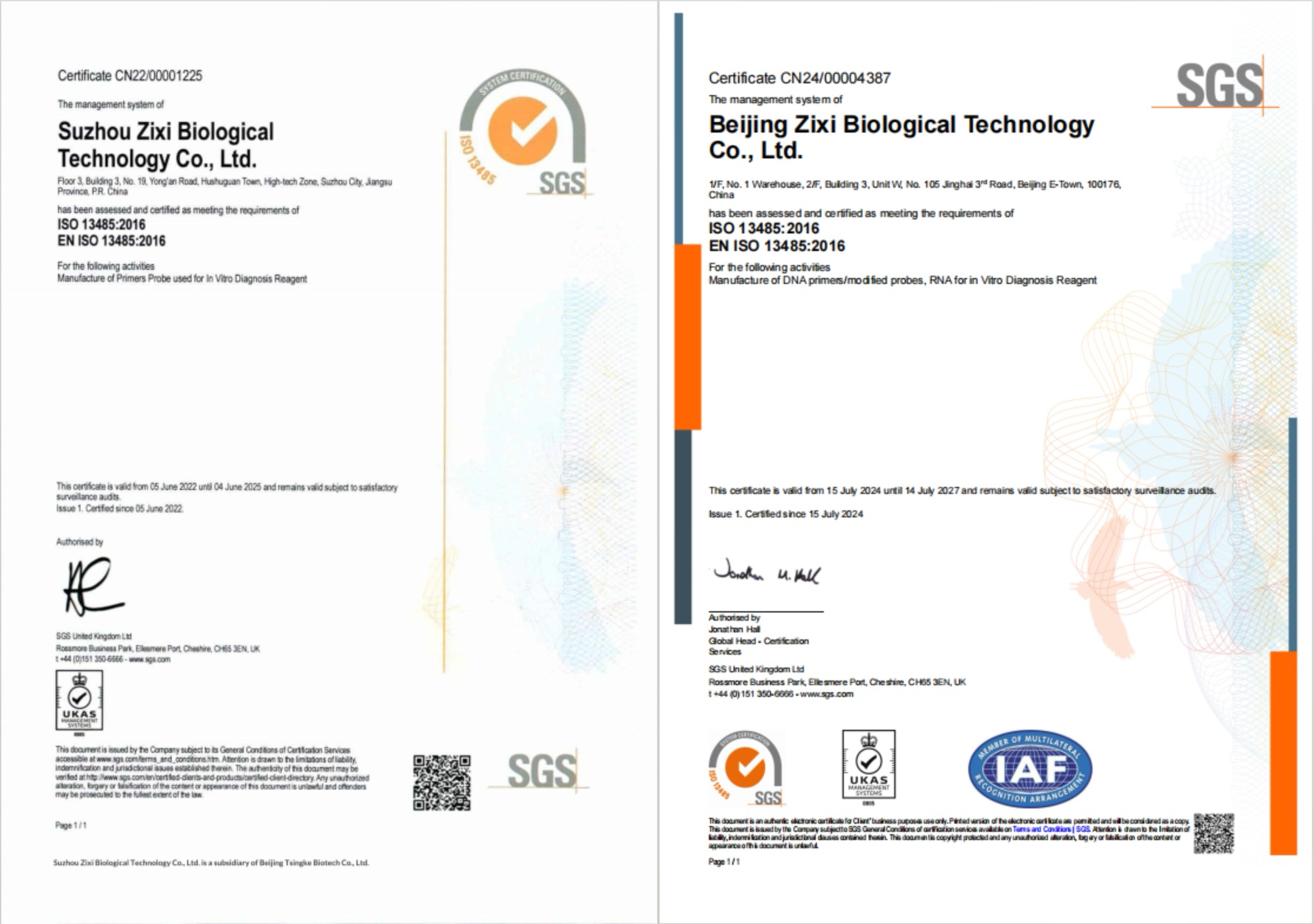In the realm of molecular biology, obtaining and manipulating target genes are fundamental tasks that drive advancements in research and biotechnological applications. Two pivotal techniques enabling these processes are molecular cloning and gene synthesis. Both methods have unique principles, procedures, and applications that make them indispensable in the field. This article explores the intricacies of traditional molecular cloning and modern gene synthesis, providing a comprehensive understanding of their benefits, and differences. By delving into these techniques, you can better appreciate their roles and choose the appropriate method for specific research needs.
About Molecular Cloning and Gene Synthesis
Molecular cloning techniques and gene synthesis are two important techniques in molecular biology for obtaining target genes. The following are details.
1. What is Traditional Molecular Cloning?
Traditional molecular cloning, also known as DNA cloning, involves the use of DNA sequences from two different sources—the species from which the DNA is to be cloned and the host species that will replicate the recombinant DNA. (Wikipedia, 2024) Traditional molecular cloning can be viewed as an “in vivo polymerase chain reaction.” It follows these steps:
● Target gene acquisition: Obtain the target gene by PCR amplification or by digesting exogenous DNA with restriction enzymes to produce sticky ends compatible with the vector.
● Vector preparation: Select suitable cloning vectors, such as plasmids, and create insertion sites by restriction digestion to enable ligation of the target gene fragment.
● Ligation: Use DNA ligase to join the target DNA fragment to the vector DNA, forming a recombinant DNA molecule.
● Transformation: Introduce the recombinant DNA molecule into the host cell. Screening and Amplification: Screen host cells containing recombinant DNA molecules and culture them to replicate and amplify the target DNA. (Ha, C.E. and Bhagavan, N.V, 2023, pp, 453–476)
2. What is Gene Synthesis?
Gene synthesis is the process of synthesizing DNA sequences using chemical or biological methods. It allows the synthesizing of double-stranded DNA molecules directly according to the target gene sequence without using templates and without being restricted by the source of the gene. It follows these steps:
● Sequence design: The base sequence is designed according to the function of the target gene. It can also be optimized according to the codon usage bias of different organisms to enhance the expression level of the gene in hosts.
● Oligo synthesis: The designed gene sequence is divided into short oligonucleotide fragments, which will be synthesized into small fragment oligos using chemical synthesis.
● Gene assembly: Single-stranded oligos will be spliced into double-stranded gene fragments using overlapping PCR techniques. These fragments will be assembled into the target complete sequence by digestion, ligation, and other techniques.
● Quality control: The obtained gene sequence will be verified by NGS or Sanger sequencing technology to ensure its accuracy.
What is the Difference Between Traditional Molecular Cloning and Gene Synthesis?
Due to the different synthesis steps, there are significant differences between traditional molecular cloning and gene synthesis in terms of time, cost, reliability, gene performance, and limiting factors. Which one should you choose? Here is a detailed analysis:
1. Time and Cost Efficiency
Molecular cloning involves several complex steps, including target gene acquisition, plasmid preparation, ligation, transformation, screening, and amplification. Each step is more complex relative to gene synthesis and takes longer. In addition, the molecular cloning process has higher material costs, while the higher failure rates also add to the cloning costs.
In contrast, artificial DNA synthesis is usually faster, especially for smaller gene fragments. Users can provide DNA sequences to a service provider, who will synthesize them in a few days. This approach reduces the complexity and time consumption of researchers. The synthesis costs are much lower than the labor and material costs of molecular cloning.
2. Accuracy and Reliability
Traditional molecular cloning techniques involve multiple enzymatic treatments, such as restriction enzyme digestion and DNA ligase. During this process, mutations in the DNA sequence may occur due to contamination of the enzyme cutting site or errors during PCR amplification.
Gene synthesis, on the other hand, enables the precise construction of DNA sequences. It uses the phosphorimide method, which adds nucleotides gradually to build the target DNA strand. Each step is carried out under tightly controlled conditions to ensure the accurate ligation of each nucleotide. In addition, the synthesized double-stranded DNA molecules are subjected to NGS, or Sanger sequencing, to ensure 100% sequence accuracy.
3. Gene Performance
The protein expression efficiency of genes cloned by traditional molecular cloning is limited by cloning efficiency, original gene sequence, and endogenous factors in host organisms. In addition, mutations and errors that may occur in molecular cloning can affect gene stability and expression efficiency.
In contrast, artificial gene synthesis allows codon optimization of DNA sequences to adapt to the codon usage bias of the host organisms, thereby enhancing protein expression efficiency.
4. Limitations
From the molecular cloning steps above, we can learn that molecular cloning can only amplify and clone existing genes and cannot synthesize specific sequences. In addition, molecular cloning is limited by DNA templates and restriction sites. Cloning is feasible only if the recognition sequences are present on the vector, insert fragments, and are also suitable for ligation.
However, artificial gene synthesis does not require DNA templates and does not have the design limitations associated with molecular cloning. It is theoretically possible to synthesize gene sequences of any size. With the flexibility to design and optimize genes, researchers can achieve precise synthesis.
Overall, artificial gene synthesis has obvious advantages in synthesis efficiency, reliability, and protein expression efficiency, and it is not restricted by sequences and templates, providing greater flexibility.
Artificial DNA synthesis is particularly suitable for occasions where a large number of genes need to be rapidly obtained for research, such as in university laboratories, pharmaceutical companies, agricultural applications, etc.
Tsingke as Your Gene Synthesis Service Provider
Gene synthesis plays a crucial role in various fields, such as life science research, biopharmaceuticals, biobreeding, biomanufacturing, gene storage, etc. In order to promote smoother research and obtain stable and accurate gene sequences quickly, it is crucial to choose a reliable gene synthesis service provider.
Tsingke, as a company providing cutting-edge gene synthesis services, has become a trustworthy choice for researchers with its efficient synthesis technology and platform. Tsingke is equipped with an intelligent gene synthesis line to provide high-quality, efficient, and cost-effective plasmids up to 200kb in length. Clients can select from over 160 commercial vectors and benefit from complimentary codon optimization services, ensuring the optimal expression of both prokaryotic and eukaryotic genes. Every plasmid undergoes meticulous NGS and Sanger sequencing. Moreover, leveraging a sophisticated nucleic acid sequence optimization algorithm, Tsingke streamlines sequence synthesis complexities while enhancing protein expression. With a turnaround time of just 5 days, obtaining the desired synthesized gene is swift and hassle-free.
Conclusion
Overall, molecular cloning techniques and gene synthesis are both methods of gaining target genes, but they differ greatly in terms of steps, time, cost, reliability, and expression efficiency. In contrast, gene synthesis is a more efficient, flexible, and reliable solution.
Tsingke provides cutting-edge gene synthesis solutions for universities, research institutes, and biopharmaceutical companies. Contact us for your customized synthesis solutions!
References
Ha, C.E. and Bhagavan, N.V. (2023) 'Structure and properties of DNA,' in Elsevier eBooks, pp. 453–476.
Wikipedia (2024) Molecular cloning [Online]. Available at: https://en.wikipedia.org/wiki/Molecular_cloning. (Accessed: 7 August 2024)





